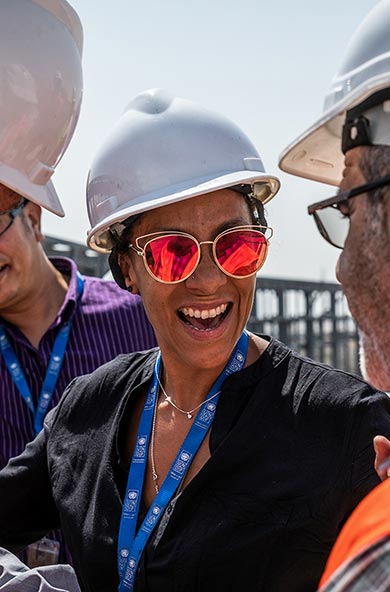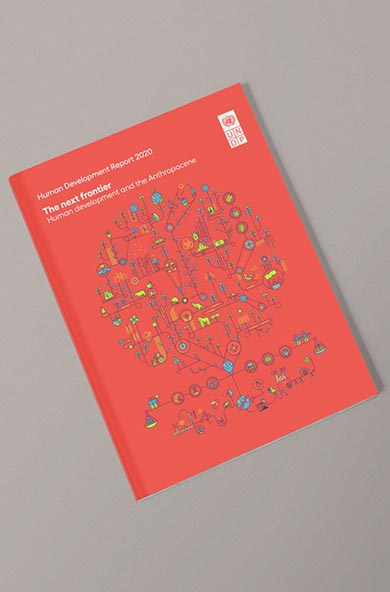Walking the Tightrope of Development, Stakeholder Engagement, and Re-invention: Lessons from the UNDP Accelerator Lab, Namibia
April 1, 2025

UNDP Namibia
Navigating the nexus of policy, grassroots innovation, and development today feels like traversing a labyrinth of shifting expectations, power dynamics, and evolving realities. The role of UNDP (United Nations Development Programme) in Namibia is no different. Over my five years as the Head of Experimentation at the Accelerator Lab, I've gained invaluable insights into how we engage stakeholders, partners and how this engagement leads us to constantly reinvent ourselves to stay relevant amidst emerging challenges. This journey has taught me that our work is largely relational and how we engage stakeholders requires going beyond the usual playbook.
Reimagining our approach to development requires adopting new frameworks or buzzwords. It’s about rethinking how we engage with the communities we serve, redefining the value we offer, and innovating in ways that reflect Namibia's unique socioeconomic and cultural context. But how can we do this? How can we engage stakeholders in ways that are truly transformative, and not just transactional?
Beyond hackathons, maker-thons, raves, fests, jams, and escape rooms, which we have prototyped over the years, I would like to share some unusual, yet practical ways to do so.
1. Go Beyond the Usual Suspects: Engaging the “Unseen” Stakeholders
In Namibia, as in many other developing countries, stakeholder engagement often revolves around the same actors-government officials, NGOs, private sector leaders, and the donor community. While these groups are critical, they don’t always represent the full spectrum of voices.
What if we intentionally sought out those who are often excluded from the conversation? Namibia’s indigenous communities, rural youth, women entrepreneurs in informal economies, and local artists hold valuable insights into the country’s development challenges and opportunities. This is something we discovered when we hosted Fabrica’s Make-a-thon. These voices are often overlooked, yet essential for creating inclusive and sustainable solutions.
One approach could involve co-creating solutions with non-traditional stakeholders. Imagine a collaboration between Cricket Namibia, a local community in Otjimbingwe, and the youth to tackle issues like climate resilience, digitalisation, the circular economy, and unemployment. Such partnerships challenge conventional power dynamics and inject fresh perspectives into development work.
2. Reframe Development Challenges Through Storytelling
While numbers and reports have their place, they rarely ignite the imagination or emotional connection needed to drive meaningful engagement. Namibia has a rich tradition of storytelling. This is a tool that can be leveraged to highlight UNDP’s work as a partner rooted in the community, not just as the stereotypical donor or funder.
Imagine hosting a “Living Library” where stakeholders—from government officials to people in underserved communities—come together to share their lived experiences around issues like drought, unemployment, or education. These stories could then inform not only policy but also how we communicate and design interventions.
Storytelling helps dismantle the “us vs. them” mentality often inherent in development. These platforms and experiences provide the basis for shared narratives, empathy building, and trust -two ingredients critical for stakeholder engagement.
3. Experiment with Unconventional Spaces for Dialogue
Development conversations often happen in boardrooms, workshops, and conference venues, but these spaces can feel sterile and hierarchical. What if we reimagined where and how we engage stakeholders?
For example, since we started our work as a Lab in 2020:
- The Accelerator Lab prototyped an Ethics Escape Room which was used as a learning experience for Ethics and Integrity Officers in the Public Service to highlight disruptive technologies and their impact on policy and knowledge gaps in the Public Service Staff Rules and Code of Conduct.
- In 2022, we organized an Empathy Walk at the United Nations House for International Day of Persons with Disabilities (IDPD), where participants were given the opportunity to the challenges persons with disability face while experiencing them firsthand.
- Recently, we highlighted the assets, skills and opportunities within a community in Otjimbingwe using a “Asset Based Community Development” approach where community members actively led discussions, while we actively listened. This exercise formed the basis of the setup of the Community SDG Lab.
These unconventional approaches can break down barriers and foster more authentic connections.
4. Use Technology to Empower, Not Just Automate
In Namibia, as in many other countries, technology is often seen as the silver bullet for development. Yet, tech solutions frequently overlook the structural inequalities they are meant to address. How might we use technology not only as a tool for efficiency but also as a tool for empowerment?
For instance, UNDP is supporting the government on strengthening digital legal identity governance. This project supports the creation of localized, open-source platforms where communities can share data, monitor development projects, and hold stakeholders accountable. Imagine how digital wearables that allow people living and working in the street to access health care and safe houses among other services in real-time, creating a grassroots-driven data system that complements national efforts on addressing the challenge of homelessness.
The key is to ensure that tech interventions:
- Are co-designed with the people they aim to serve.
- Prioritize accessibility, especially for marginalized groups.
- Create public goods (for example, advocate for open data, shared resources) that benefit everyone.
5. Embrace Radical Humility and the Power of Listening
One of the biggest challenges facing several organisations and in particular the public sector is the trust deficit between development actors and the communities they serve. Rebuilding this trust requires going beyond the usual rhetoric - it demands humility and a willingness to listen deeply.
What does this look like in practice?
- Admit when you’re wrong. If a project isn’t working, acknowledge it, cut your lessons, involve stakeholders in rethinking the approach and document the lessons learnt.
- Make room for dissent. When working with different stakeholders, acknowledge the role of competing and conflicting interests. Create safe spaces where stakeholders can voice criticism without fear of retribution.
- Focus on relationships, not transactions. Development is not a one-off project; it is a long-term commitment to partnership and mutual growth.
When trust is established, stakeholders are more likely to collaborate, innovate, and invest in the shared goal of sustainable development.
Rethinking Stakeholder Relationships: Our Call to Action
As part of constant renewal, we believe that UNDP along with our other partners have a unique opportunity to redefine our roles - not just as development actors, but as catalysts for inclusive, community-driven change. This requires moving beyond business-as-usual approaches, interrogating quantitative data and embracing bold, unconventional strategies for stakeholder engagement.
The five ideas outlined above are provocations. They are informed by many of the projects we have worked on, ideated and prototyped over our five years of existence. They have challenged us to think differently about what it means to genuinely engage stakeholders, build trust, and create relevance in a rapidly changing world.
As we walk this fine line between innovation and development, let’s remember that the ultimate goal is not just to “implement projects” but to connect to and empower people, shift systems, and create a future where everyone can thrive.
What unusual approaches have worked for you in engaging stakeholders? What lessons can the UNDP learn from your experiences? Let’s keep this conversation going - we’d love to hear your thoughts.
Join me on this journey as we rethink development together.

 Locations
Locations












